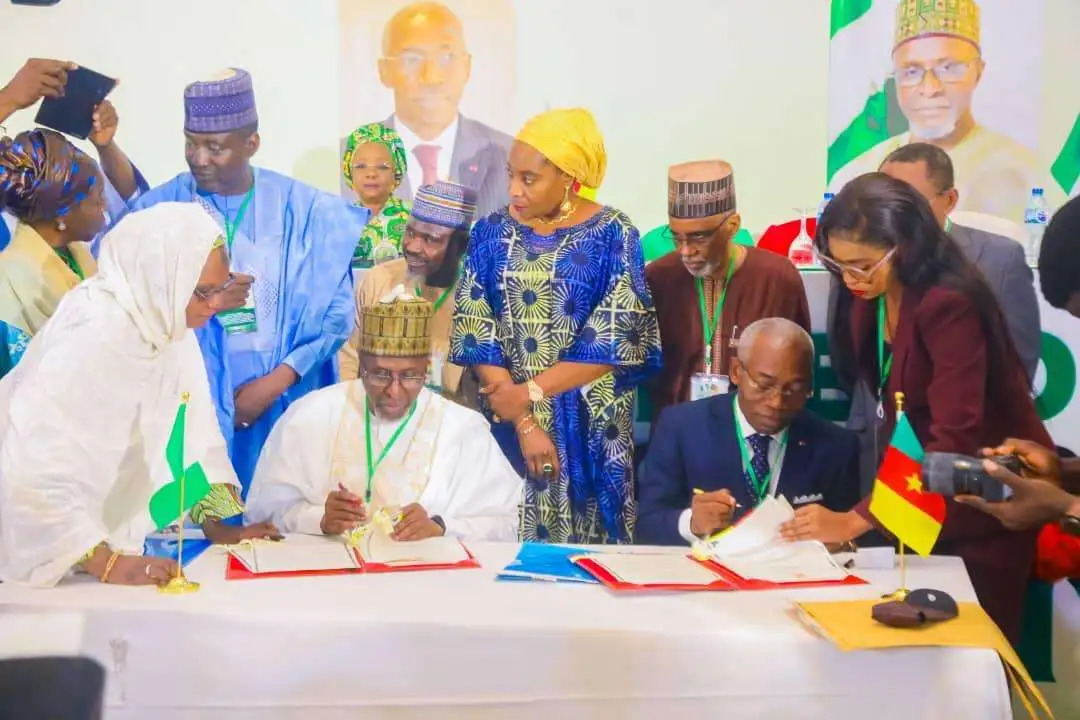
Nigeria and Cameroon Agree to Combat the Trans-Border Trade in Wildlife
Nigeria and Cameroon have reached an agreement to work together to combat the illegal trade in wildlife and to advance the management of forestry and wildlife resources.
The government of Nigeria and its neighbor, Cameroon, have inked a Memorandum of Understanding (MoU) to work together to combat the transboundary trafficking in wildlife, as well as to support ecosystem conservation and the management of forestry and wildlife resources.
The deal was signed on Friday in Abuja by Jules Doret Ndongo, the minister of forestry and wildlife of Cameroon, and Balarabe Abbas, the minister of the environment in Nigeria.
The Nigerian minister made these remarks during the signing of the MoU (Cooperation Framework Agreement on Trans boundary Ecosystem Conservation and Sustainable Management of Forestry and Wildlife Resources). He described the agreement as a significant step forward and a foundation for the creation of a cooperative framework for transboundary management.
He clarified that the agreement’s implementation intends to oversee and coordinate designated areas of cooperation, guarantee that special protocols align with designated areas of cooperation, cooperate in the execution of shared transboundary programs, and establish institutional frameworks and fund mobilization strategies for shared transboundary program implementation.
The Minister stated: “Social factors like overpopulation, poverty, and food insecurity have continued to immerse these resources to the brink of extinction, aside from the global phenomenon of climate change and environmental challenges.” While this is going on, transboundary crimes like poaching, illegal logging, and wildlife trafficking have made the trend worse and appear to have validated the alarming but resounding warning that approximately one million species face extinction, many of them within decades, as reported in the historic Inter-Governmental Science-Policy Platform on Biodiversity and Ecosystem Services (IPBES), 2019 Global Assessment Report.
The adoption of bilateral and multilateral approaches is more promising when taking into account the continuum and migratory nature of these resources against the backdrop of the complexities of their transboundary management and conservation. With our common border spanning over 1,500 km, stopping and reversing the unsavory trend cannot be achieved by the political will and commitment in a country alone.
In that regard, today’s event is highly significant because it not only highlights the current government’s commitment to working with Cameroon to manage and conserve our shared natural resources through the Renewed Hope Agenda, but it also highlights the value of bilateral cooperation in addressing global issues. Therefore, it can be claimed that this agreement was motivated by its lengthy history and that it was a fitting response to the parties’ international commitments.
It marks a significant turning point and offers a framework for the creation of a cooperative transboundary management system that will promote coordination and cooperation between our nations on issues pertaining to the preservation and sustainable use of our natural resources. Our forests and animal resources are essential to our ecosystem functions, way of life, and sustainable development. This framework will be helpful in guaranteeing their efficient protection and sustainable management.
“This agreement will foster the sharing of experiences, knowledge, and best practices between the Federal Republic of Nigeria and the Republic of Cameroon, as well as further facilitate the development and implementation of joint programs and projects for the conservation and sustainable management of transboundary ecosystems.”
Jules Doret Ndongo, Cameroon’s Minister of Forestry and Wildlife, gave his word that his country would make every effort to carry out the deal.
He declared, “One of the causes of climate change is the over-exploitation of forestry resources and poaching, particularly cross-border poaching, which pose serious threats to the sustainable management of our natural resources.”
“Given this instrument’s significance, I hereby implore all parties engaged in this process to apply it with more commitment. You may be confident that the Cameroonian government will make every effort to execute this agreement at all levels.
The Economic Community of West African States (ECOWAS) advisor, Adewale Adeleke, spoke on behalf of the group’s head of the division responsible for environment and climate change, Bernard Koffi, saying, “This is one agreement ECOWAS has been looking forward to; we need to cooperate with each other, we need to share experiences and work together both legally and with communities to safe guard the resources of both counties.”
All Categories
Recent Posts
Tags
+13162306000
zoneyetu@yahoo.com



